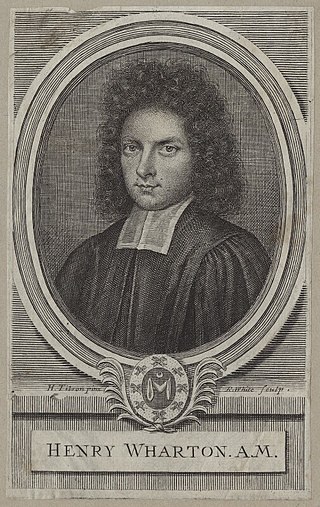Related Research Articles
Æthelnoth was the archbishop of Canterbury from 1020 until his death. Descended from an earlier English king, Æthelnoth became a monk prior to becoming archbishop. While archbishop, he travelled to Rome and brought back saint's relics. He consecrated a number of other bishops who came from outside his archdiocese, leading to some friction with other archbishops. Although he was regarded as a saint after his death, there is little evidence of his veneration or of a cult in Canterbury or elsewhere.
Athelm was an English churchman, who was the first Bishop of Wells, and later Archbishop of Canterbury. His translation, or moving from one bishopric to another, was a precedent for later translations of ecclesiastics, because prior to this time period such movements were considered illegal. While archbishop, Athelm crowned King Æthelstan, and perhaps wrote the coronation service for the event. An older relative of Dunstan, a later Archbishop of Canterbury, Athelm helped promote Dunstan's early career. After Athelm's death, he was considered a saint.
William de Corbeil or William of Corbeil was a medieval Archbishop of Canterbury. Very little is known of William's early life or his family, except that he was born at Corbeil, south of Paris, and that he had two brothers. Educated as a theologian, he taught briefly before serving the bishops of Durham and London as a clerk and subsequently becoming an Augustinian canon. William was elected to the See of Canterbury as a compromise candidate in 1123, the first canon to become an English archbishop. He succeeded Ralph d'Escures who had employed him as a chaplain.

Eadmer or Edmer was an English historian, theologian, and ecclesiastic. He is known for being a contemporary biographer of his archbishop and companion, Saint Anselm, in his Vita Anselmi, and for his Historia novorum in Anglia, which presents the public face of Anselm. Eadmer's history is written to support the primacy of Canterbury over York, a central concern for Anselm.

Henry Wharton was an English writer and librarian.
Æthelgar was Archbishop of Canterbury, and previously Bishop of Selsey.
Eadsige, was Archbishop of Canterbury from 1038 to 1050. He crowned Edward the Confessor as king of England in 1043.
John Blund was an English scholastic philosopher, known for his work on the nature of the soul, the Tractatus de anima, one of the first works of western philosophy to make use of the recently translated De Anima by Aristotle and especially the Persian philosopher Avicenna's work on the soul, also called De Anima. He taught at Oxford University along with Edmund of Abingdon. David Knowles said that he was "noteworthy for his knowledge of Avicenna and his rejection of the hylomorphism of Avicebron and the plurality of forms.", although the problem of the plurality of forms as understood by later scholastics was not formulated explicitly in Blund's time. Maurice Powicke calls him the "first English Aristotelian."
Simon of Wells was a medieval Bishop of Chichester.
William de Cornhill was a medieval Bishop of Coventry.
John of Canterbury was Bishop of Poitiers 1162 to 1181 and subsequently Archbishop of Lyon 1181 to 1193. He became a "cosmopolitan and much-respected churchman".
Goscelin of Saint-Bertin was a Benedictine hagiographical writer. He was a Fleming or Brabantian by birth and became a monk of St Bertin's at Saint-Omer before travelling to England to take up a position in the household of Herman, Bishop of Ramsbury in Wiltshire (1058–78). During his time in England, he stayed at many monasteries and wherever he went collected materials for his numerous hagiographies of English saints.
Sir John Cheyne or Cheney was a Member of Parliament and briefly the initial Speaker of the House of Commons of England in the Parliament of October 1399, summoned by the newly acclaimed Henry IV.
John Coldwell (c.1535–1596) was an English physician and bishop.

Frithegod, was a poet and clergyman in the mid 10th-century who served Oda of Canterbury, an Archbishop of Canterbury. As a non-native of England, he came to Canterbury and entered Oda's service as a teacher and scholar. After Oda's death he likely returned to the continent. His most influential writing was a poem on the life of Wilfrid, an 8th-century bishop and saint, named Breviloquium Vitae Wilfridi. Several manuscripts of this poem survive, as well as a few other of Frithegod's poems. He was also known for the complexity of his writings, with one historian even calling them "damnably difficult".

Benjamin Harrison (1808–1887) was an Anglican clergyman and ecclesiastical administrator. His father was Benjamin Harrison, Treasurer of Guy's Hospital.
Thomas Sprott or Spott was an English Benedictine chronicler, a monk of St Augustine's Abbey, Canterbury.
References
 This article incorporates text from a publication now in the public domain : Hunt, William (1886). "Birchington, Stephen". In Stephen, Leslie (ed.). Dictionary of National Biography . Vol. 05. London: Smith, Elder & Co.
This article incorporates text from a publication now in the public domain : Hunt, William (1886). "Birchington, Stephen". In Stephen, Leslie (ed.). Dictionary of National Biography . Vol. 05. London: Smith, Elder & Co.- Ramsay, Nigel (October 2006). "Stephen Birchington" . Oxford Dictionary of National Biography (online ed.). Oxford University Press. doi:10.1093/ref:odnb/2440 . Retrieved 10 October 2012.(Subscription or UK public library membership required.)